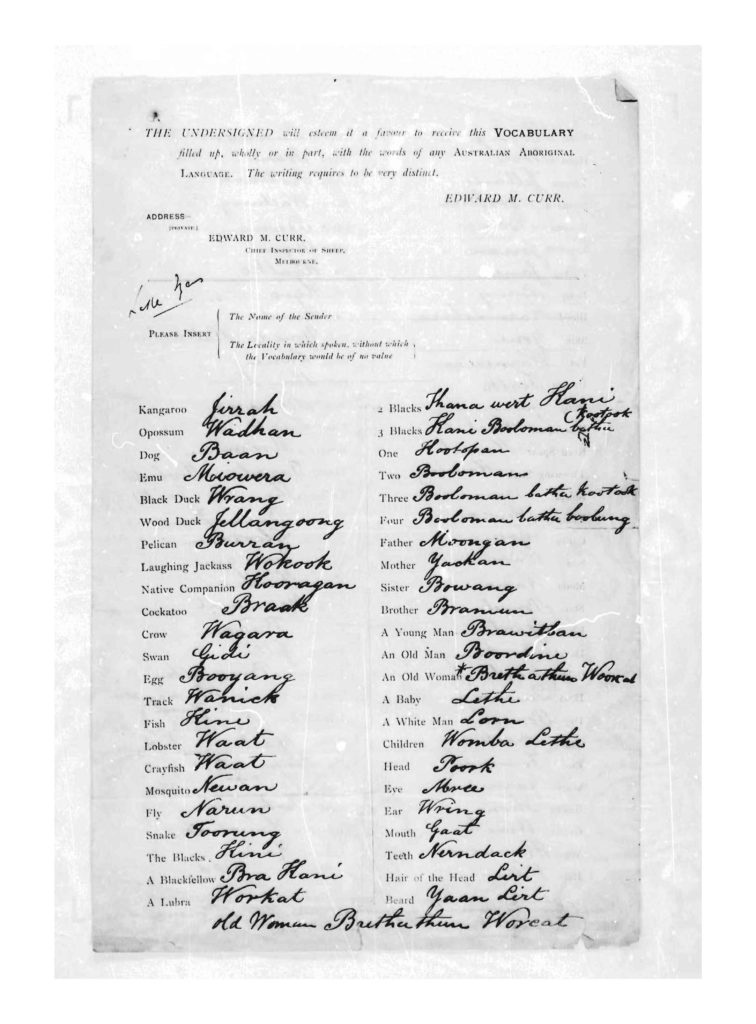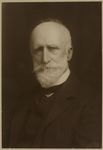 Jason Gibson is an anthropologist and curator with the Melbourne Museum in Australia. He has worked on numerous projects concerning Australian Aboriginal heritage materials and wrote his doctoral thesis on important audio, visual and manuscripts collections of Aboriginal songs and ceremonies. He is currently the project manager for a large project digitising the notebooks, letters, maps and writings of the early anthropologists A.W. Howitt and Lorimer Fison. This is an interview with him about the project, which is hosted on FromThePage.
Jason Gibson is an anthropologist and curator with the Melbourne Museum in Australia. He has worked on numerous projects concerning Australian Aboriginal heritage materials and wrote his doctoral thesis on important audio, visual and manuscripts collections of Aboriginal songs and ceremonies. He is currently the project manager for a large project digitising the notebooks, letters, maps and writings of the early anthropologists A.W. Howitt and Lorimer Fison. This is an interview with him about the project, which is hosted on FromThePage.
What are the Howitt and Fison papers?
 Howitt and Fison were two of the first anthropologists in Australia and they had important connections to other anthropologists in the United Kingdom and the United States, like Lewis Henry Morgan and Edward Tylor. They studied the Aboriginal people of southern and eastern Australia between the 1860s and 1900, at a time when there was little emphasis on this. Their methodical work on Aboriginal language, kinship, song and culture was pioneering at the time and the information they amassed is now a treasure trove of Australian Aboriginal history. Although Howitt in particular met with many Aboriginal people, most of the Howitt and Fison work is based on correspondence with people across the Australian continent. Both Howitt and Fison would write to missionaries, pastoralists, policeman and others that lived in remote parts of the country asking for help in developing knowledge of Aboriginal customs and languages. As there were very few others interested in gathering this sort of information on Aboriginal people in Australia at the time, these letters contain very important and unique information.
Howitt and Fison were two of the first anthropologists in Australia and they had important connections to other anthropologists in the United Kingdom and the United States, like Lewis Henry Morgan and Edward Tylor. They studied the Aboriginal people of southern and eastern Australia between the 1860s and 1900, at a time when there was little emphasis on this. Their methodical work on Aboriginal language, kinship, song and culture was pioneering at the time and the information they amassed is now a treasure trove of Australian Aboriginal history. Although Howitt in particular met with many Aboriginal people, most of the Howitt and Fison work is based on correspondence with people across the Australian continent. Both Howitt and Fison would write to missionaries, pastoralists, policeman and others that lived in remote parts of the country asking for help in developing knowledge of Aboriginal customs and languages. As there were very few others interested in gathering this sort of information on Aboriginal people in Australia at the time, these letters contain very important and unique information.
Tell me about the language of the documents.
Because Howitt and Fison were collecting information on Aboriginal people, most of the documents contain a huge amount of Aboriginal language material. At the time of colonisation, Australian Aboriginal people spoke hundreds of different languages and dialects and while many of these languages are still spoken in parts of Australia, in some areas they are no longer spoken. This is part of the reason why Howitt and Fison’s papers are so important. They contain some of the most detailed wordlists and explanations of languages that began to fall out of use before better analysis and documentation could be done. There are over 50 different languages documented in these papers. Transcribing this language material is not always easy and the handwriting of the correspondents can make things very challenging also! FromThePage is making this work much easier to do and we’re able to collaborate with historians, linguists, anthropologists and Aboriginal people in making these transcripts.
Many of the documents appear to be forms with hand-written responses. How did that work?
Yes, as I said above, most of the documents are letters written to Howitt or Fison. Howitt and Fison initially put out advertisements in newspapers asking for help with pulling together information on the various Aboriginal groups across Australia. A relatively small number of people responded but those that did would often write many times and send lots of very interesting and important information through to Howitt and Fison. Some of the other papers are Howitt’s drafts for his publications and books. Other items that we are transcribing include the notebooks that Howitt used he when in the field observing people or talking with them.
What are your goals for the project?
We want to use the transcripts that are being made in FromThePage in a website that features the combined works of Howitt and Fison. We’re also hoping that Aboriginal communities in Australia who are interested in language revitalisation will use these resources in that work and we also want to make their work just generally more accessible. This is why FromThePage is so useful for us. Having good quality transcripts that can be verified and worked on by multiple people (including expert linguists and interested Aboriginal people) means that we can more easily share and discuss this work with more and more people.
We’d like to invite volunteers who are interested in Australian history, Aboriginal people and their languages to help us transcribe these important documents.
Start a project of your own on FromThePage with a free trial.
